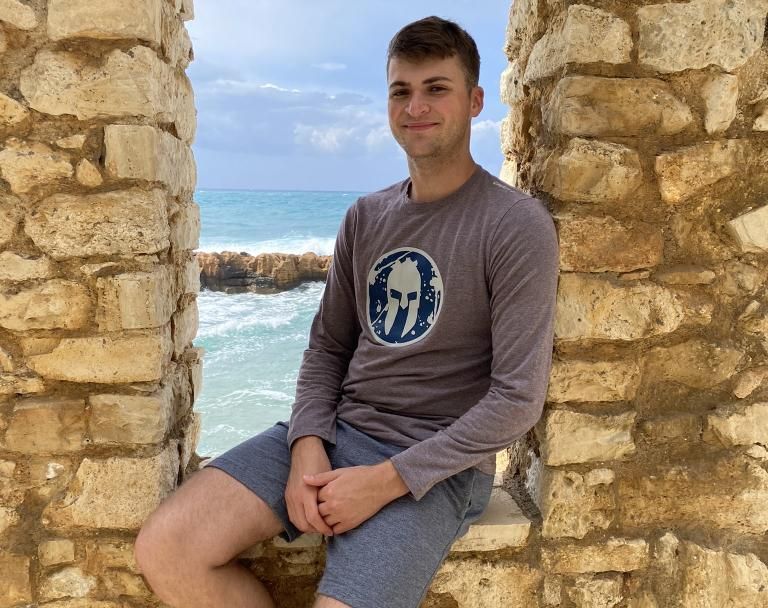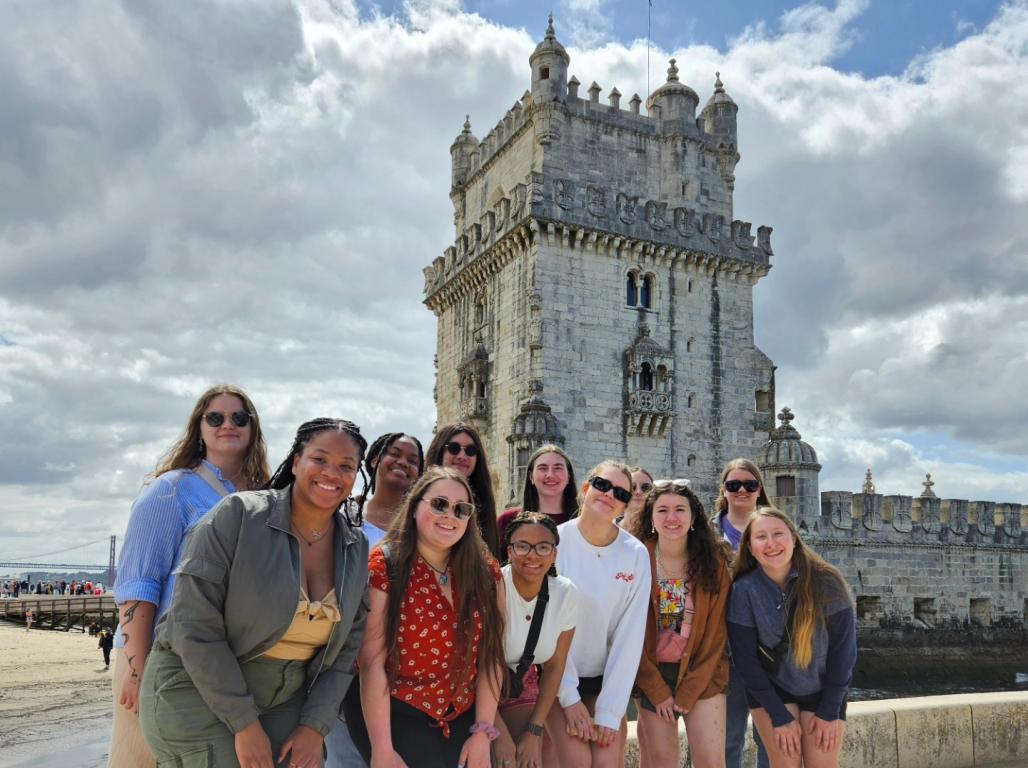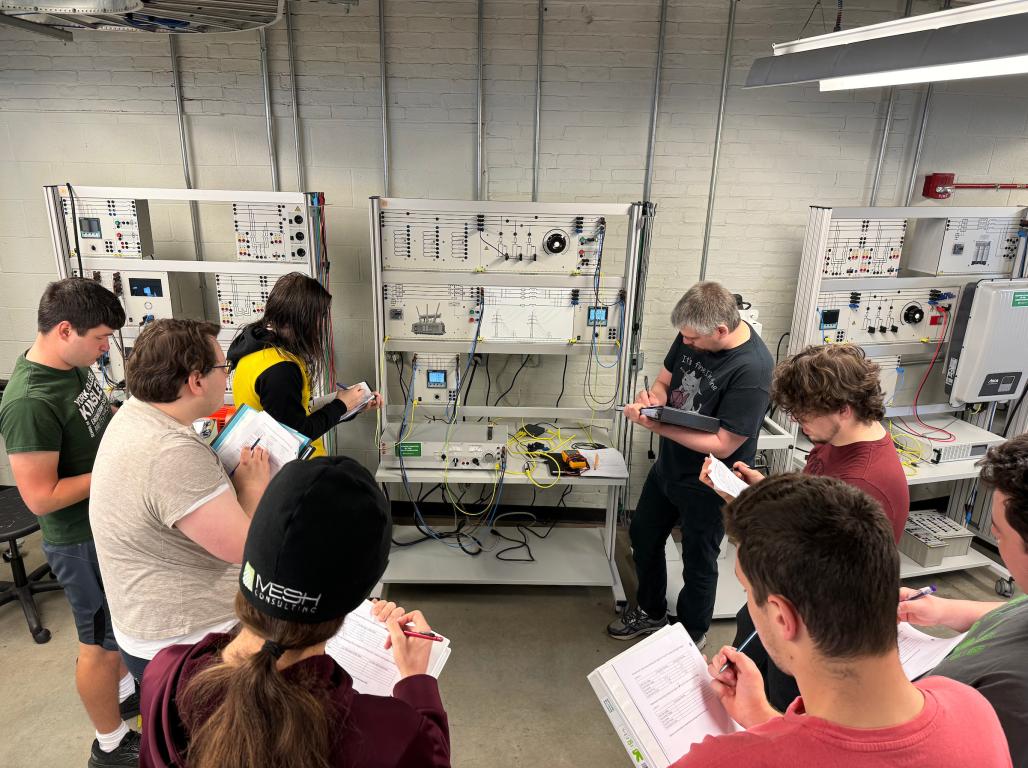College can be a confusing place, but it doesn’t have to be. In Getting to Know Yo(u)rk, we speak to members of the York College community to shed light on various aspects of the college experience.
Why should you study abroad?
We asked that question and more to several members of the York College community—Talon Basiewicz ’24 and Associate Professor of Geography and Director of Learning Dr. David Fyfe. Read below to hear about their personal experiences with study abroad—and why students able to take advantage of the opportunity say it’s such a beneficial experience.
Talon Basiewicz ’24, Nursing
How Did You Become Involved With Study Abroad?
I have always loved to travel. Before college, I had the opportunity to travel a bit, and I immediately loved it. Going to places that were so different from where I grew up and getting to see things that looked straight out of movies was surreal.
The way I got involved with traveling here at YCP was by being involved. I knew studying abroad was something I wanted to be able to experience in college, but due to my major was probably not a realistic goal, so I found other options. I started going to meetings about summer travel and reaching out to people who had traveled in college and asking them about it. An additional challenge was COVID. When I came to York, no one was traveling abroad or had any idea when we'd be able to [travel] next.
Finally, the summer after my sophomore year I was able to go abroad with YCP. The Honors Community resumed their annual trips, and I was able to apply and was selected.
Where Have You Traveled With Study Abroad at YCP?
I have been to Chania, in Crete, Greece, and Wloclawek, Poland.
What Was Your Favorite Trip or Experience?
My favorite experience while traveling is always meeting the locals and being able to speak with them. With my YCP trips, we've worked with a local university and students. Getting to go to dinner with them after our workshops and sessions is where I learn the most. We all have such different experiences with just about everything, and it's so neat hearing about their childhood and education and what they do for fun.
At the same time, we all are so similar, so it's hard not to get along. One night we went bowling with a group of Polish nursing students and got to talk about anything and everything. I've made lifelong friends from these trips. I also got to stand on top of a mountain and watch it snow—that was pretty neat, too.
From Your Perspective As a Student at YCP, What Were Some of the Most Beneficial Aspects of Study Abroad For You?
The most beneficial aspect of study abroad for me has easily been seeing how aspects of nursing differ in other countries. The nursing curriculum is fairly similar from what I have seen, since we all have lectures and simulations to practice what we learn.
Seeing foreign hospitals has also been such a unique experience. The two hospitals I have been to in other countries have had less resources than we have in America. However, all of their patients are well taken care of, and they seem to do well despite the lack of technology we take for granted.
Seeing other countries' healthcare systems has made me very grateful for the resources we have here, but also more creative and able to look for a less-common solution to a problem. This experience has also made me realize aspects of our healthcare that are lacking. Europe is very good at caring for the patient as a whole, and I think this is something we could do better at here. I have learned things that might not be common knowledge for our nurses in America that I can incorporate into my practice, making me better able to care for my patients.
What is Your Best Piece of Advice For Students Who Are Interested in Participating in Study Abroad?
My biggest piece of advice for anyone wanting to study abroad or travel is: don't be afraid. Don't be afraid to reach out to a professor going abroad and ask questions. It might not work out, but it also might! You're never going to get to study abroad if you don't put yourself out there.
It can be the most terrifying thing imaginable getting on a plane and going thousands of miles away from everything you know. But once you get there, you might just like it. You might see things you've only seen on postcards or meet someone who becomes a lifelong friend. There are things that can go wrong when traveling, yes, but those things can also go wrong here. Traveling can only widen your knowledge and give you unique experiences.
Dr. David Fyfe, Associate Professor of Geography and Director of Learning
How Did You Come to YCP?
Upon completion of my Ph.D. at Penn State University, I knew that I wanted to be at an institution that valued teaching and student learning. I knew that I wanted to be somewhere with small class sizes so that I could get to know students who were in my classes. York College was an easy choice for me to apply—this has been my first and only job in higher education since I started in 2009.
How Did You Become Involved With Study Abroad?
While at Penn State I was able to lead a study abroad course as a graduate student. I loved the model of experiential learning that allowed students to travel to other parts of the world to learn by doing and experiencing other cultures.
During my first year at YCP, I set up a summer faculty-led course called Cultures and Environments Field Series that I have run every summer to a different destination. In 2010 I also started the International Service-Learning course that travels to India every other year, where students volunteer at an orphanage in southern India and learn about the country by providing service to an international NGO there.
What Was Your Favorite Trip or Experience?
All of them! I have led dozens of faculty-led study abroad trips to 18 different countries, and all have been my favorite!
From Your Perspective as a Faculty Member, What Are Some of The Most Beneficial Aspects of Study Abroad For Students?
Experiential learning is well known to be a high-impact practice when it comes to higher education. In my experiences over the years, I find that students who participate in study abroad experiences are curious and want to know more about the places that they are experiencing. That curiosity is something that allows them to learn so much in a short period of time, such as during the college experience. My role as a faculty member is to guide them and provide opportunities for them to learn.
What is Your Best Piece of Advice For Students Who Are Interested in Participating in Study Abroad?
Time and money are the two main challenges with global travel. Everyone thinks that once they have a job and are earning a good salary that they will be able to afford to travel. However, for many people, after graduation they find that although they may have the financial resources to travel, time becomes a bigger factor with job and family responsibilities. My advice would be to figure out how to make time and resources for travel a priority, as there are so many benefits for experiencing other cultures and seeing the world in person.
York College works with Engaged Scholars and Graham Collaborative Innovation Fellows From Day One to help them form their dreams into a personal mission, which is supported with financial and other assistance. They leave York College with a record of achievement that will gain the attention of employers, graduate schools, or others who provide entry into the next step in the extraordinary lives they imagine for themselves.




